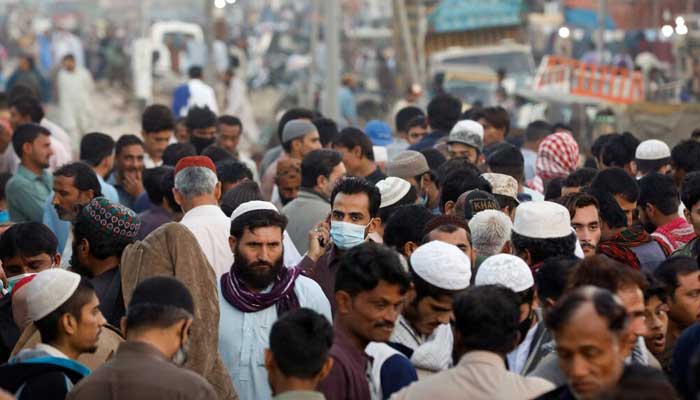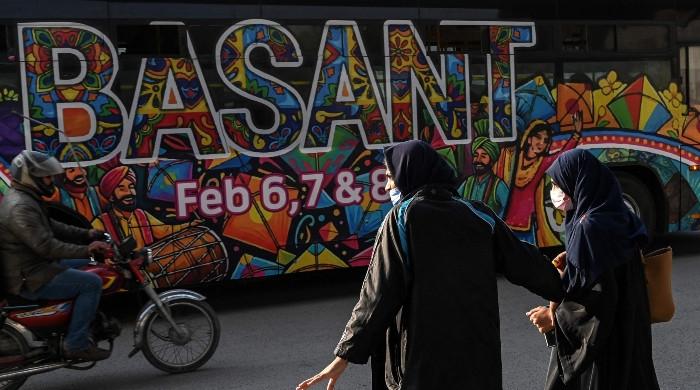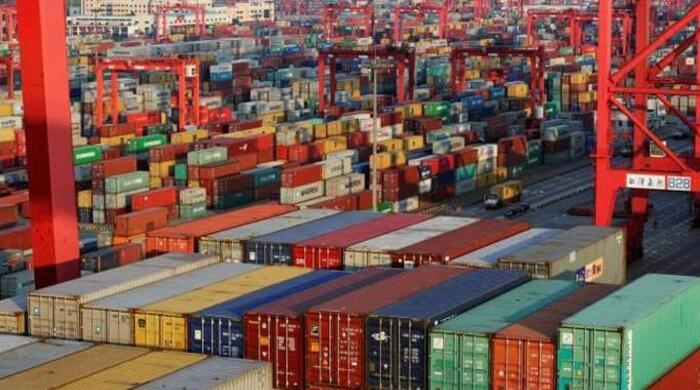Broken governance, broken outcomes
Pakistan's budgeting system suffers from "low credibility", "fragmentation" and "ad-hoc decision-making", observes IMF
November 27, 2025

When a governance report reads like a structural diagnosis, it confirms that Pakistan’s crisis is far deeper than economics. The IMF’s "Governance and Corruption Diagnostic Assessment (GCDA)' does exactly that.
It is the most systematic review to date of how Pakistan's institutions operate — and why they repeatedly generate economic, fiscal and governance failures.
Much of what the report states is not new to Pakistanis. What is new is that, for the first time, the IMF has declared these governance shortcomings as "deep-seated, systemic and macro-critical". Governance is no longer a background problem but the central reason Pakistan keeps falling into crisis.
It is also the severest GCDA the IMF has issued on any country so far — a reflection of the scale and depth of Pakistan’s institutional decay. Yet the GCDA often uses understated and cautious wording — terms like "weaknesses", "gaps", "vulnerabilities", "challenges".
This soft tone risks obscuring the far more serious reality underneath. The analysis is devastating even if the language is diplomatic; the report’s findings, when read carefully, describe a state suffering from systemic erosion of capability, predictability and integrity.
One of the starkest examples is public financial management. The IMF observes that Pakistan's budgeting system suffers from "low credibility", "fragmentation" and "ad-hoc decision-making".
Beneath these seemingly mild words lies a harsh truth: Pakistan's budgets do not reflect actual fiscal outcomes, spending repeatedly diverges from approved plans and fiscal risks remain hidden or poorly monitored.
The country is essentially operating without a reliable financial steering mechanism. Stabilisation becomes episodic and fiscal crises recur with every economic cycle because the institutions that administer fiscal governance are structurally weak.
On public procurement, the report classifies multiple areas as having "high corruption risks".
Pakistan's procurement practices suffer from weak transparency, extensive discretionary authority, limited e-procurement usage, and inconsistent regulatory application. These vulnerabilities inflate project costs, degrade infrastructure quality and create opportunities for rent-seeking. In a resource-constrained economy, such leakage is not simply inefficiency; it is a binding constraint on development.
The GCDA's review of state-owned enterprises (SOEs) is equally sobering. The IMF notes that many SOEs are "loss-making" and that their governance suffers from "political influence", "lack of transparency" and weak performance oversight. At the same time, the Fund acknowledges some recent progress, notably the promulgation of the SOE Act, improvements in SOE reporting and the establishment of the Central Monitoring Unit.
These are positive steps but nowhere close to sufficient. Pakistan’s SOE sector remains a massive fiscal burden, especially in the energy chain, where governance failures directly feed into circular debt and power sector losses.
On revenue administration, the IMF underscores Pakistan’s structural failures through phrases such as "weak enforcement", "large tax expenditures" and "discretion" in the application of exemptions.
While the report does not use the exact term "elite capture", its findings unmistakably point to a revenue apparatus skewed towards the protection of powerful groups through exemptions and discretionary treatments, leaving the burden disproportionately on compliant taxpayers and the formal sector.
This erodes fairness, encourages informality and keeps Pakistan perpetually dependent on borrowing. Anti-corruption institutions also come under sharp scrutiny.
The IMF points to "overlapping mandates", "coordination gaps", policy inconsistencies and weaknesses in investigation and prosecution capacity. It highlights how corruption risks emerge not only through rent-seeking but through ambiguity, weak systems and discretionary authority.
The result is a patchwork of accountability bodies that lack coherence and effectiveness — an architecture unable to prevent corruption or enforce predictable consequences.
The most consequential portion of the report concerns rule of law and the judiciary. The IMF highlights "vulnerabilities to corruption of judicial institutions", weaknesses in "judicial independence and integrity" and the "capture of judicial institutions". Courts, it notes, often struggle with effective contract enforcement and face large backlogs, procedural delays, and inconsistent decision-making.
Although the phrasing is subtle, the implication is not: a justice system that cannot reliably enforce contracts or protect property rights becomes a fundamental barrier to investment and economic transformation. Pakistan’s ranking in the "bottom quartile of countries" on rule-of-law indicators reflects a system that undermines rather than supports economic development.
The report also analyses the Special Investment Facilitation Council (SIFC). The IMF acknowledges improvements in coordination and decision-making speed, noting that the SIFC has the potential to accelerate investment.
However, it raises serious governance concerns: the SIFC’s broad mandate creates "institutional fragmentation", parliamentary scrutiny is reduced due to limited transparency, and the immunity provisions introduced through legal amendments "weaken accountability". The Fund recommends explicit protocols, increased transparency and the integration of SIFC operations within existing PFM and regulatory frameworks, rather than allowing it to function as a parallel institutional structure.
The message is clear: fast-tracking investment should not come at the cost of rule-based governance.
Importantly, the GCDA does recognise areas of progress. The IMF acknowledges improvements in beneficial ownership transparency, AML/CFT compliance, digitisation of certain revenue processes, SOE reporting reforms, progress on monetary policy governance and adoption of multi-year budget planning frameworks. These gains matter, but they are insufficient to offset the scale of systemic weaknesses the report identifies.
Perhaps the most powerful contribution of the GCDA is its quantification of lost economic potential. The IMF states that Pakistan’s growth has been "weighed down by longstanding governance weaknesses" and that corruption vulnerabilities "constrain private sector development".
It estimates that Pakistan could raise GDP by 5.0–6.5 percentage points over five years by implementing a package of governance reforms focused on anti-corruption, business regulation and foreign trade regulation, with positive effects beginning "within three to six months".
This is a data-driven conclusion based on cross-country evidence: governance is Pakistan’s largest unrealised growth driver.
Why must Pakistan act now? Because every year of delay deepens institutional decay.
Stabilisation efforts fail without credible governance. Investor confidence will not return without rule-of-law reliability. Public trust erodes when the state is perceived as serving the few rather than the many. Governance reform is not a political slogan; it is the foundation of economic recovery. It requires transparent budgeting, depoliticised SOEs, automated procurement, predictable tax enforcement, strengthened regulatory bodies and an autonomous, efficient justice system.
The IMF's diagnosis does not reprimand Pakistan but warns it. Behind its soft tone lies a clear and urgent message: Pakistan’s crisis is not a mystery. It is a predictable outcome of broken governance. And the pathway to sustainable recovery is equally predictable: fix governance and outcomes will follow. Broken governance produces broken outcomes. But with political will, the opposite is also true.
The writer is a former managing partner of a leading professional services firm and has done extensive work on governance in the public and private sectors. X: @Asad_Ashah
Disclaimer: The viewpoints expressed in this piece are the writer's own and don't necessarily reflect Geo.tv's editorial policy.
Originally published in The News











